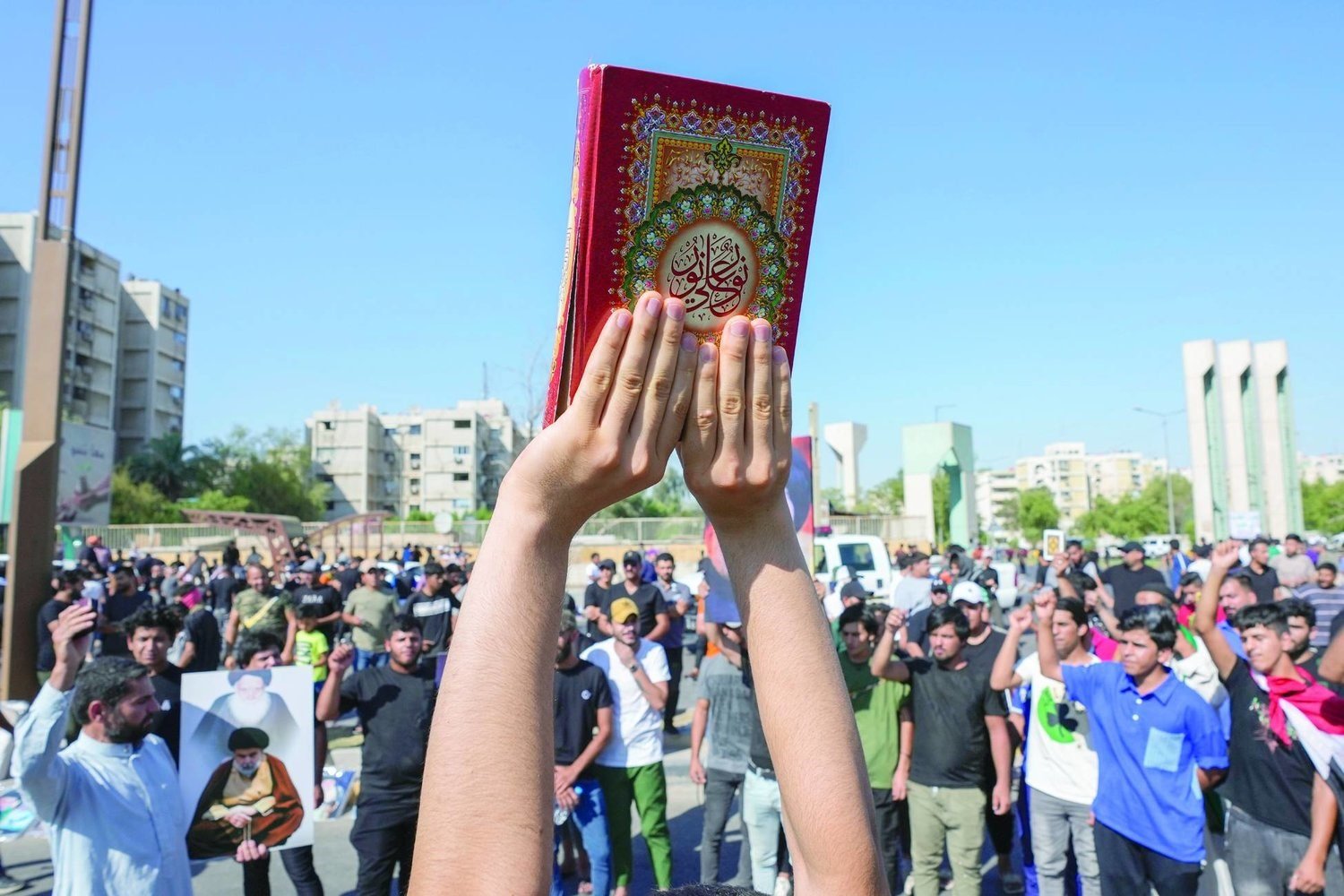UN Human Rights Council condemns Quran burning
Pakistan's Ambassador Khalil Hashmi assures that the resolution was not aimed at limiting free speech but at striking a prudent balance.
-

Protesters in front of the Swedish embassy in Baghdad, Iraq, in response to the burning of the Quran in Sweden on June 30, 2023 (AP)
The UN Human Rights Council condemned on Wednesday the recent Quran burning in Sweden after Pakistan and other Organization of Islamic Cooperation (OIC) countries brought forward a resolution when the Quran burning incident in Sweden by an Iraqi man triggered a red alarm across the globe.
28 votes were in favor, 12 were against, with seven abstentions.
The UK, the US, France, and Germany, alongside Costa Rica and Montenegro, voted against the resolution. US Ambassador Michele Taylor claimed that a consensus could have been reached if more time was given for discussion.
"Unfortunately our concerns were not taken seriously," she stated, adding, "I'm truly heartbroken that this council was unable to speak with a unanimous voice today in condemning what we all agree are deplorable acts of anti-Muslim hatred, while also respecting freedom of expression."
Speaking for the OIC, Pakistan's Ambassador Khalil Hashmi assured that the resolution was not aimed at limiting free speech but at striking a prudent balance.
Read next: EU Statement condemns new Quran burning in Sweden
"Regrettably, some states have chosen to abdicate their responsibility to prevent and counter the scourge of religious hatred," he expressed, continuing, "A message has been sent to billions of people of faith across the world that their commitment to prevent religious hatred is merely a lip service."
"The opposition of a few in the room has emanated from their unwillingness to condemn the public desecration of the holy Quran... They lack political, legal and moral courage."
'Islamophobia is on the rise'
The resolution text decries all manifestations of religious hatred, including "public and premeditated acts of desecration of the Holy Koran" and urges the need to hold culprits accountable.
It also urges the need to adopt laws to "address, prevent and prosecute acts and advocacy of religious hatred that constitute incitement to discrimination, hostility or violence," while asking UN rights chief Volker Turk to address gaps in the laws of countries.
Turk already said on Tuesday that these incidents "appear to have been manufactured to express contempt and inflame anger; to drive wedges between people; and to provoke, transforming differences of perspective into hatred and, perhaps, violence."
The nations that were among the abstentions were Benin, Chile, Mexico, Nepal, and Paraguay.
Mexico's Ambassador Francisca Mendez Escobar expressed, "Not all criticism of religion amounts in and of itself to an incitement to discrimination, hostility or violence."
Meanwhile, Paraguay's Ambassador Marcelo Scappini Ricciardi believed a unanimous resolution was "clearly possible", adding, "If we cannot agree on such an essential topic, that does not show us in a good light."
Chile's Ambassador Claudia Fuentes Julio said, "Some of its provisions would seek to limit freedom of expression... Chile deplores that the constructive suggestions made during the negotiations were not duly reflected in the text."
Argentina, China, Cuba, India, South Africa, Ukraine, and Vietnam supported the resolution.
China's Ambassador Chen Xu highlighted that "Islamophobia is on the rise. Incidents involving desecrating the holy Koran have happened again and again in some countries," continuing, "These countries have done nothing to implement their professed respect for the protection of freedom of religious belief."
However, even though Argentinian Ambassador Federico Villegas backed the resolution, he admitted, "We would have liked to have reached a text with more consensus and clarity."
On June 28, a man named Salwan Momika, 37, burned a copy of the Muslim Holy book outside the Stockholm Central Mosque. He was granted a permit from Swedish authorities before carrying out his act.
Read more: Iran exposes the Quran burner in Sweden as an Israeli spy

 4 Min Read
4 Min Read








